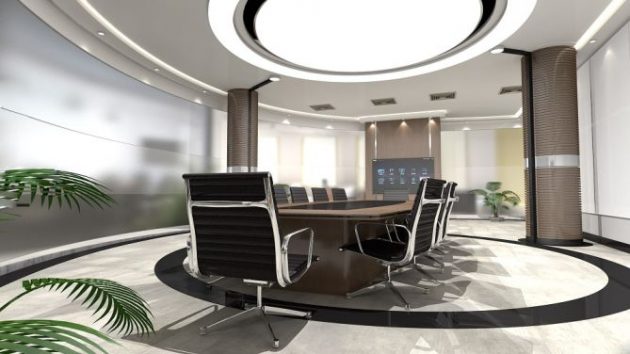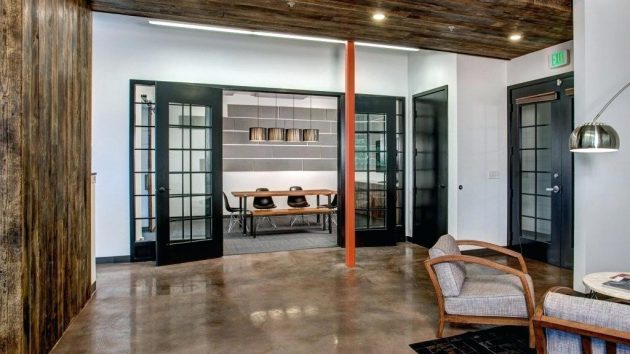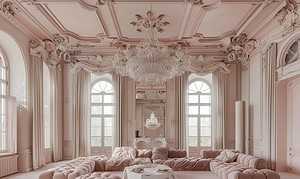A well-developed design is crucial for any commercial construction project. Whether you are building a shopping mall or a corporate plaza, you need an exceptional building design. This is a step that you have to think about at the same time when you are hiring a Commercial Construction company for your project.
Interior designing is the most important part of the design phase. There are certain aspects that an owner or investor must keep in mind while developing commercial design. In case you don’t know much about commercial interior designing, don’t get confused.
We have written this article specifically for you to clear your doubts. The article presents information about commercial interior designing and how it’s different from the residential interior designing. In addition, you would know how interior design can add value to your commercial space.
So, let’s start with the basics and guide you about what commercial interior designing is.
What Is Commercial Interior Designing?
This is a relatively new designing concept that is gaining popularity with the rise of skyscrapers. As the name represents itself, commercial interior designing is the branch of interior designing that emphases on commercial spaces. It combines productivity and practicality with aesthetics and has become essential for industries and offices over the years.
Difference between Residential and Commercial Interior Design
The main difference between a residential and commercial interior design lies with the impression. Residential interior design focuses on creating liveable and welcoming spaced for the residents or homeowners. On the contrary, a commercial interior design emphasis on elevating the style and functionality of the building for financial gain.
The commercial interior designer is more responsible and liable for ensuring building design than the commercial contractor. Also, the scope of work is much larger as the commercial interior designer must translate the client’s vision into reality. He/she has to be innovative and creative in developing a design that is practical, chic, and of course, profitable.
How Interior Designing Can Help Commercial Spaces
The commercial interior design depends on the aspects that the physical structure is up to code and completely safe. It is all about planning the space area without surrendering basic design.
Here’s how interior design can help commercial buildings and improve their productivity and functionality.
1.Satisfying Unique Requirements
Commercial spaces usually have more people in them than residential buildings at one time. This is a factor that completely alters the safety elements as well as the building codes. In addition, most commercial spaces also have unique requirements and needs that residential buildings don’t have.
These are the requirements that are essential for any commercial building. These additions include:
- Parking structures
- Escalators
- Elevators
- Cafeterias
- Restaurant kitchens
- Gyms
- Conference rooms
- Large bathrooms
These necessary additions greatly affect the interior design of commercial space.
2.Attraction for Clients
It is crucial for commercial buildings to have a design that can attract potential clients. Retail spaces have specific areas that are meant to attract clients and shoppers. For example, some buildings and big stores have model spaces to showcase lucrative products in order to attract the passer-by.
A hotel is another significant commercial building that requires interior commercial design. Most hotels often hire interior designers to remodel their existing spaces for a fresh look.
3.Optimizing the Space
Commercial interior design starts with the construction phase to ensure better use of the space. The interior designer at a commercial space usually works with the architect, contractor, and technicians simultaneously. Thus, he/she makes sure that there is an adequate area available and enough space to cater to aesthetic needs.
Commercial interior design is all about creating suitable work stations along with satisfactory open areas. In addition, the use of adequate lighting, especially natural light is important to make sure the building is energy efficient.
4.Work-Friendly Atmosphere
A friendly atmosphere is an important aspect when it comes to commercial construction projects. People are the key factor in workspaces and commercial interior designing ensures the building caters to their needs. A good commercial designer makes sure there is enough space for people to work and the area is adequately lit.
5.Considering Future Growth
Commercial interior designing not only involves the aesthetical aspects but also work on future growth. An exceptionally designed interior plan will entail the future plans as well in case the commercial entity grows in the future.
Commercial interior designing enables a building to incorporate additional functions when needed. One such example is the expansion of commercial buildings for charging stations. This is a modern trend that caters to the needs of the floating working population. Such places allow people to charge their devices at power points, making them more friendly than other commercial buildings.
6.Leisure Area
Of course, leisure spaces are as important in a commercial building as they are in homed or residential areas. Commercial interior designing takes care of leisure needs and ensure people in the building have adequate leisure points. These include cafeterias, lounges, smoking areas, and small restaurants. A commercial interior designer makes sure that the leisure areas inside the building are comfortable and meet the aesthetic needs of shoppers or employees.
Hiring the Right Interior Design Professional
Interior designing is heavily involved in commercial construction projects. And an excellent commercial design depends on the skills of the interior designer. A commercial interior designer has to make sure that every construction process is going according to plan. So, try to hire a professional who has the skills ad reputation for his/her work.
Bottom Line
Interior designing in commercial spaces is involved at every step of the project from construction to finishing. Minor architectural details, such as window placement, floor and ceiling design, lighting, and future space needs are crucial for commercial buildings. Interior designing can not only add value to your commercial building but also help you attract more clients.
















